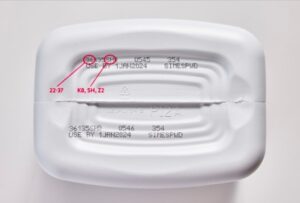As concerned parents scramble for information in the wake of a Cronobacter baby formula recall, the FDA is amplifying the methods consumers can use to ask questions or submit complaints.
On Friday, the U.S. Food and Drug Administration (FDA) issued a consumer advisory about Similac, EleCare, and Alimentum baby formulas made at Abbott Nutrition’s Sturgis, MI facility. The advisory was prompted by three reports of Cronobacter sakazakii infections and one report of a Salmonella Newport infection in infants who had consumed these products. All four infants were hospitalized and Cronobacter may have contributed to a death in one case, according to the FDA.
“As this is a product used as the sole source of nutrition for many of our nation’s newborns and infants, the FDA is deeply concerned about these reports of bacterial infections,” said Frank Yiannas, FDA Deputy Commissioner for Food Policy and Response in a press release about the advisory. “We want to reassure the public that we’re working diligently with our partners to investigate complaints related to these products, which we recognize include infant formula produced at this facility, while we work to resolve this safety concern as quickly as possible.”
Shortly after the FDA posted the advisory, Abbott issued an international baby formula recall for the products made at the Sturgis facility. The recall does not include liquid formula. The recalled powdered infant formula products have the following identifying information on the bottom of the containers:
- the first two digits of the number will start with the numbers 22 through 37 and
- they contain K8, SH, or Z2 and
- they have an expiration date of April 1, 2022, or after

This morning, the FDA sent an email to subscribers with a link to the investigation update and a link to a page where consumers can submit questions or request assistance. The agency also moved an information box with three ways to contact the FDA to the top of the investigation notice.
To report an illness or adverse event, consumers can:
- Call the FDA Consumer Complaint Coordinator or your state
- Complete an online form
- Complete a paper form that can be mailed to FDA

Infants with Cronobacter Symptoms Need Immediate Medical Care
Cronobacter illnesses are rare but, as these current cases show, they can be deadly for newborns. That’s because in infants who are less than 12 months old, Cronobacter usually causes sepsis or severe meningitis, according to the Centers for Disease Control and Prevention (CDC).
Infants with meningitis may develop brain abscesses or other serious complications that can cause long-term neurological problems and about 40 percent of Cronobacter meningitis cases are fatal, the CDC says.
In infants, symptoms of sepsis or meningitis include the following symptoms: a pinprick rash, blotchy skin, high fever, shivering, fatigue, rapid breathing or difficulty breathing, unusual grunting sounds, refusal to eat, stiff jerky movements or a very floppy body, irritability, diarrhea, and cold hands and feet. If your baby has these symptoms, seek immediate medical care.
Despite the fact that infants are among those at the highest risk of contracting Cronobacter and at high risk of developing severe infections, Cronobacter is not a reportable disease nationwide. Reportable diseases are those that are considered to be of great public health importance. But in the U.S., only one state, Minnesota, requires Cronobacter illnesses to be reported when they are diagnosed by doctors or laboratories.
Reporting illnesses provides a base of information about how illness occurs and helps health officials identify outbreaks. So, reporting is a really important public health tool. If your baby developed a Cronobacter infection, please use one of the three methods provided by the FDA to report it.

For a free consultation, please call us at 1-888-377-8900 or, text 612-261-0856.




